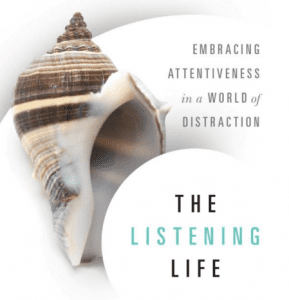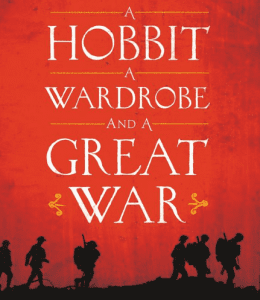This review is by Carl Trueman, professor at Westminster Theological Seminary, pastor, and one of my favorite church historians. His book, The Creedal Imperative, is a timely reminder that low church doctrinal statements need stronger ties to the great tradition of the church. (Come back at 9:30am today for a summary of that book.) I have been reading this year on American Protestant liberalism but when I came across Theo Hobson, Reinventing Liberal Christianity, and began to read it I realized he made a move that few have made: he ties liberal theology to liberal politics from the Enlightenment on. So I asked Carl Trueman if he would consider a review for the blog, and I’m grateful for his incisive piece. By the way, Carl Trueman has learned the craft of writing by reading some truly great essayists, like William Hazlitt, George Orwell, and Joseph Epstein.
Trueman’s review:
That liberalism, political or theological, is not enjoying good health is obvious to even the most casual observer. The rise of religious extremism, particularly that of Islam, has presented the Left with a series of choices which have pushed it towards incoherence. Theologically, the picture is little different: liberal Christianity is in decline as it does little more than offer a vaguely religious vocabulary for expressing ideas that are, to be frank, more compelling when stated in secular terms.
In this well-written and fascinating book, Reinventing Liberal Christianity, Theo Hobson laments the parlous state of liberal Christianity and, after an extended historical narrative, offers a plea for its reinvention.
At the heart of Hobson’s book lies a fundamental distinction which he makes within liberal Christianity: there is liberal Christianity which, taking its basic cue from Schleiermacher, seeks to redefine the faith in a way that a conservative like myself would say disembowels it of its content by purging away the supernatural and redefining doctrine in psychological or social categories. That is the definition of liberal Christianity with which most evangelicals operate. Yet Hobson also offers another definition, that of liberal Christianity as affirming the liberal state, with its traditional values of personal freedom.
To summarise Hobson’s historical narrative, he sees John Milton as offering an account of Christianity which affirmed the liberal state and also set forth a model of the relationship between the sacred and the secular which allowed for dialogue without the kind of dogmatic universalizing of reason which actually triumphed and placed a basic dilemma at the heart of the liberal state which we live with today: individual freedom versus a totalizing vision of the truth. What Hobson wishes to do, therefore, is not reinstate classic Christian liberalism but to call it back to its roots in people like John Milton.
There is much to enjoy in this book. It is good to be reminded that the Roman Catholic Church only decided to jump on the religious liberty bandwagon in the 1960s (after Elvis had passed his peak, if you want a pop culture marker to remind you of how recently that was). Hobson’s treatment of Hauerwas is stimulating: he appreciates Hauerwas’s (for want of a better word) sectarianism but dislikes his repudiation of the liberal state. It is hard to argue with that: Hauerwas only enjoys his opportunities to write as he does because he lives in a liberal state. North Korea presumably offers less attractive opportunities for its resident Christian ethicists.
One thing that struck me, though, is that the model offered is not distinctively liberal in terms of its theological commitments. While Milton is the poster child of the seventeenth century for Hobson, there were other voices calling for an understanding of church and state which certainly pointed towards the modern liberal state. John Owen, for example, a high Calvinist if ever there was one, argued for toleration of Protestant sectarianism in 1660s. That his argument served his own personal cause does not render it invalid or insignificant. ‘Good liberalism’ can easily be held by the most theologically and traditionally doctrinaire of people. Further, one might point today to certain branches of Reformed theology, such as that elaborated by David VanDrunen in his recent book, Divine Covenants and Moral Order, which offer a very nuanced account of the relationship of church and state, such that the identity and task of the church is not confused with that of transforming society. Interestingly enough, it seems to me that there are a number of practical similarities between that position and that of, say, Scot McKnight.
The other matter which Hobson does not really address and yet which is so germane to the current situation is the role of the law courts. With so many competing visions of what individual freedom actually looks like (as opposed to what it is in theory), the liberal state has arguably ceded significant power to the judicial branch of government in a manner which is set to increasingly limit democracy and also ultimately to redefine what is actually meant by freedom. As a Christian in America today, I fear judicial rulings more than I trust in elections.
[For an exceptional example of Trueman’s point here, he pointed me to First Things and the report about Bowdoin College.]
Like Hobson, I like the idea of the liberal state and I like living in one, for all of its manifold faults, imperfections and inconsistencies. Frankly, the mewling and puking about it which one finds among those who have generally done rather well under it and, indeed, could not have done well under any other system, have always smacked too much of sophomoric posturing.
Unlike Hobson, however, I am pessimistic about the future of Christianity in the liberal state on the grounds that the crisis in liberalism itself, between individual freedom and social morality, is one that has transferred power from the people and into the law courts. At that point, liberalism as traditionally conceived, is dying and no revival or purging of liberal Christianity looks set to make much difference.











